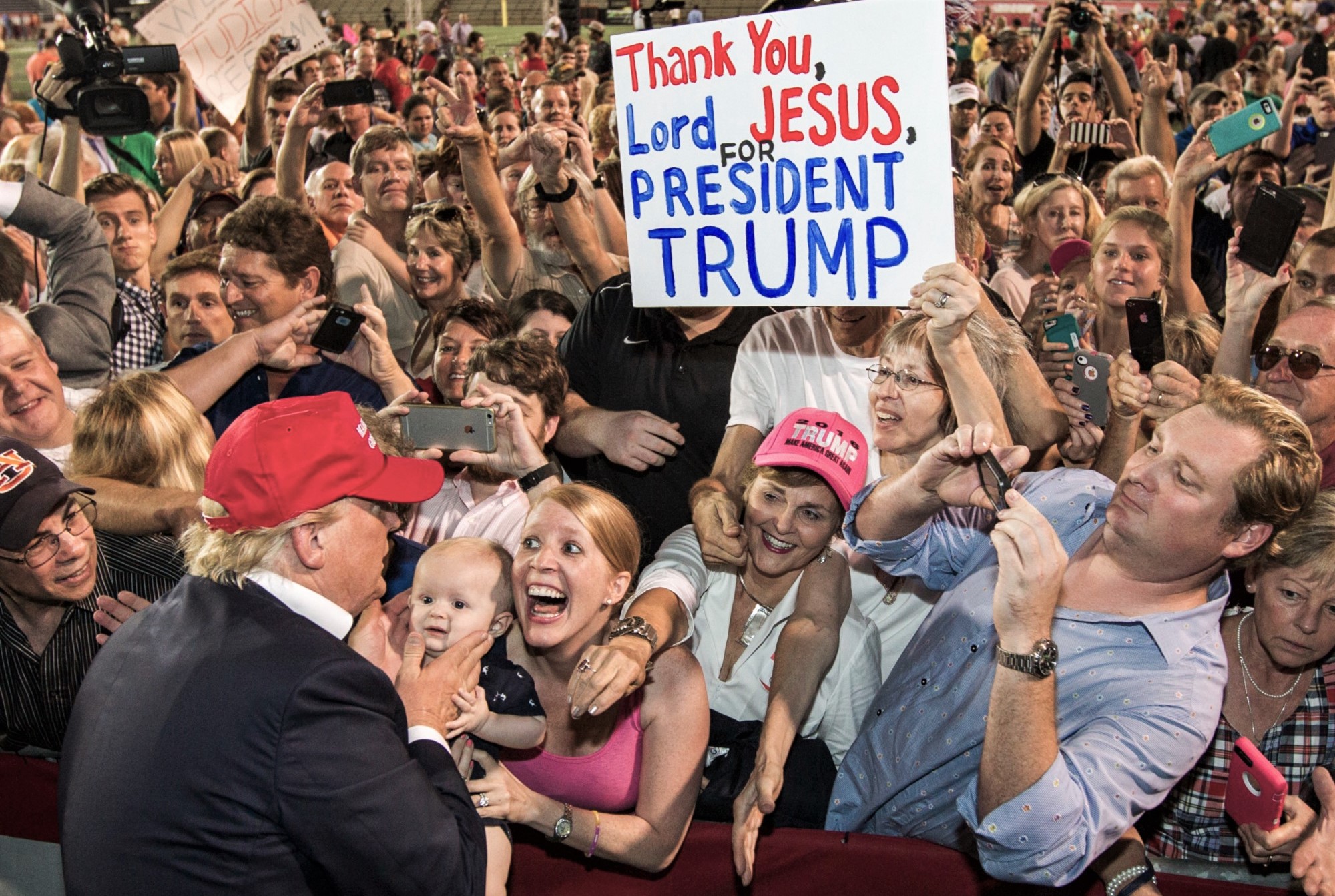Who is David Brody and what makes him so special?

Continuing my series to answer to two questions:
How do we reconcile the divisiveness of Trump with our values as Americans?
How does the country come together, again?
Of all the journalists — from mainstream media to Breitbart — David Brody enjoys unprecedented access to the Trump administration like no other.
“The access has been phenomenal,” Mr. Brody said, as reported by The New York Times (May 15). “I’m very appreciative to God for allowing it.”
While most everyone else in the press has been labeled “Fake News” whenever a story appears challenging Trump and the White House, Brody’s organization sticks to what it knows best: conservative evangelical voters “who make up CBN’s core audience.”
CBN, the Christian Broadcasting Network, is “critical” to Mr. Trump’s support. “More than 80 percent of white evangelicals who went to the polls in 2016 voted for Mr. Trump.”
And that made David Brody Donald Trump’s new BFF.
“ ‘The media’s version of tough questions and my version of tough questions are different, based on the audience we serve,’ [Brody] said. ‘Our audience isn’t going to want me to really ask about Russia or Stormy Daniels. They are just not going to want me to ask.’ ”
Many Trump supporters are remarkably well-practiced at a deaf, dumb and blind approach to the president’s misstatements, or little details like the intelligence community’s evidence that Russia interfered in the 2016 election for the express purpose of swinging votes to Trump. And clearly, they don’t care if the Russians are at it, again!
If we could transport them and their fervency back to the Nixon era, they might ignore the blatant illegality of the president. And remember, back then it took months of persistence and dogged research by The Washington Post’s Woodward and Bernstein to convince the rest of the media, and the public that Richard Nixon was, indeed, trying to subvert the FBI and Justice Department during Watergate.
Now, as pollster John Zogby pointed out in Wednesday’s commentary, “The press has done a wonderful job of investigating and reporting on government, political, ecclesiastical, not-for-profit and corporate corruption that the public truly gets it. No one is to be really trusted, including a press that has fallen prey to ugly scandals… the worst failings and hypocrisies of institutions who are already crumbling in public trust.”
As a result, “Just 15 percent of white evangelicals say they have a lot of trust in national news organizations, according to the Pew Research Center, but [and this is the critical part] they are nearly twice as likely to trust news they hear from friends and family.”
So, if your step-brother’s sister’s cousin is tweeting the latest conspiracy theory by Sean Hannity, that cousin is likely to receive more credibility than what the facts may tell us.
This is the climate Trump inherited and exploited.
Then there’s the liberal backlash.
Associate professor of politics at the University of Virginia, Gerard Alexander, writes (Liberals, You’re Not as Smart as You Think, May 13):
“People often vote against things instead of voting for them: against ideas, candidates and parties. Democrats, like Republicans, appreciate this whenever they portray their opponents as negatively as possible. But members of political tribes seem to have trouble recognizing that they, too, can push people away and energize them to vote for the other side. Nowhere is this more on display today than in liberal control of the commanding heights of American culture. …
“Liberals dominate the entertainment industry,” Alexander argues, “many of the most influential news sources and America’s universities. This means that people with progressive leanings are everywhere in the public eye … These platforms come with a lot of power to express values, confer credibility and celebrity and start national conversations that others really can’t ignore.
“Liberals often don’t realize how provocative or inflammatory they can be. In exercising their power, they regularly not only persuade and attract but also annoy and repel.
“Consider some ways liberals have used their cultural prominence in recent years. They have rightly become more sensitive to racism and sexism in American society. News reports, academic commentary and movies now regularly relate accounts of racism in American history and condemn racial bigotry. These exercises in consciousness-raising and criticism have surely nudged some Americans to rethink their views, and to reflect more deeply on the status and experience of women and members of minority groups in this country.
“But accusers can paint with very wide brushes. Racist is pretty much the most damning label that can be slapped on anyone in America today, which means it should be applied firmly and carefully. Yet some people have cavalierly leveled the charge against huge numbers of Americans — specifically, the more than 60 million people who voted for Mr. Trump.
“In their ranks are people who sincerely consider themselves not bigoted, who might be open to reconsidering ways they have done things for years, but who are likely to be put off if they feel smeared before that conversation even takes place.
“…Some liberals have gotten far out ahead of their fellow Americans but are nonetheless quick to criticize those who haven’t caught up with them.”
And here’s the part of Alexander’s argument that slapped me in the face:
“… flatly categorizing huge segments of the country as misguided … reveal a tremendous intellectual and moral self-confidence that smacks of superiority. It’s one thing to police your own language and a very different one to police other people’s. The former can set an example. The latter is domineering.”
He’s right. And I admit that I am somewhat guilty of this judgmental tendency because of my focus, perhaps even my insistence, on stressing the importance of ethical values. While there is plenty to be said for living by an ethical code, I can sound somewhat self-righteous, (“Eat your spinach! It’s good for you.”) even if I’m right!
So, how do we overcome these tendencies.
“Champions of inclusion,” Alexander instructs, “can watch what they say and explain what they’re doing without presuming to regulate what words come out of other people’s mouths. Campus activists can allow invited visitors to speak and then, after that event, hold a teach-in discussing what they disagree with. …
“People determined to stand against racism can raise concerns about groups that espouse hate and problems like the racial achievement gap in schools without smearing huge numbers of Americans, many of whom might otherwise be Democrats by temperament.
“Liberals can act as if they’re not so certain — and maybe actually not be so certain — that bigotry motivates people who disagree with them on issues like immigration. Without sacrificing their principles, liberals can come across as more respectful of others. Self-righteousness is rarely attractive, and even more rarely rewarded.”
He’s right, again!
And yet, more can be done to bring people together than an attitude adjustment by liberals.
Monday: I answer the two questions that began this series.
Comments










